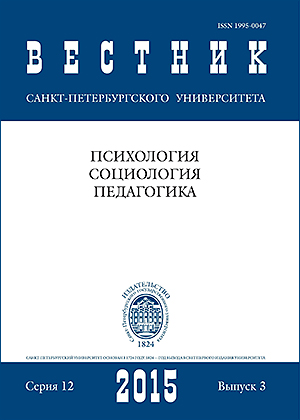ХАРАКТЕРИСТИКИ ПОВЕДЕНИЯ ДЕТЕЙ С РАННИМ ОПЫТОМ ИНСТИТУЦИОНАЛИЗАЦИИ ПОСЛЕ ПОМЕЩЕНИЯ В СЕМЬИ РОССИИ И США
Аннотация
Статья представляет результаты сравнения поведенческого развития детей с ранним опытом депривации из российских семей и семей США. В результате исследования показано, что дети из российских семей значимо чаще имеют критические проблемы экстернализации и социальные проблемы по сравнению с детьми, как усыновленными в США из учреждений России и разных стран мира, так и недепривированными детьми из американских семей. При сравнении с детьми, усыновленными в США из учреждений Румынии с тяжелыми условиями депривации, дети из российских семей имеют значимо лучшие показатели по шкалам «проблемы внимания» и «проблемы мышления». Библиогр. 62 назв. Табл. 2.
Ключевые слова:
дети, ранний опыт институционализации, замещающие семьи, поведение
Скачивания
Библиографические ссылки
References
Загрузки
Опубликован
Как цитировать
Выпуск
Раздел
Лицензия
Статьи журнала «Вестник Санкт-Петербургского университета. Социология» находятся в открытом доступе и распространяются в соответствии с условиями Лицензионного Договора с Санкт-Петербургским государственным университетом, который бесплатно предоставляет авторам неограниченное распространение и самостоятельное архивирование.




